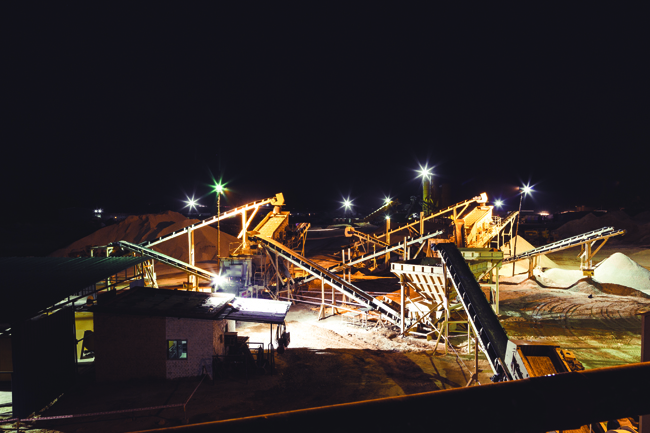
There are several key national elections taking place this year that readers of Aggregates Business International – Asia, Africa & Middle East will be paying close attention to.
In India, prime minister Narendra Modi is standing for re-election in the country’s general election being held in April and May. Set to become the most populous country on earth by 2030, India’s economy is also growing in strength. ‘The economy, stupid’ was a phrase much used by Bill Clinton in his successful 1992 U.S presidential election campaign when forecasting the biggest factor influencing the American people’s voting intention. Relating that to the forthcoming Indian general elections, it is hard to see how Modi will not win a second prime ministerial term.
Closer analysis of Modi’s first term as prime minister reveals much to enthuse the country’s aggregates industry. To help reduce often crippling traffic congestion and to better connect scores of cities and towns yet to fully reap the benefits of India’s growing economic might, Modi has backed a five-year national road sector investment programme worth more than $90 billion. It is increasing road building in India to more than 40km a day. When you add in close to 10,000kms of earmarked new railways, and the development of port infrastructure around 10 coastal economic regions, there has been and continues to be a vast wealth of opportunities for quarry operators looking to supply infrastructure building contractors’ voracious appetite for raw building materials.
Election fever is in full swing in Africa, with the continent the scene of numerous important general elections in 2019. As I write this column in mid-February, Nigeria, Africa’s most populous nation and largest economy, is preparing to go to the polls. Meanwhile, Cyril Ramaphosa’s ANC government is the hot favourite to win the South African general election in May. Given the importance and size of Nigeria’s and South Africa’s quarrying and mining industries, many minerals processing companies will be hoping that renewed investment in new major infrastructure projects by re-elected or alternative administrations will stimulate domestic aggregates demand. Other general elections in Africa this year that could have implications for domestic and regional aggregates industries will take place in Mozambique and Namibia in southern Africa, in Somalia in east Africa, and in Libya and Tunisia in north Africa.
Focusing on South-East Asia, Thailand’s high-profile general election is due to take place in March. In February, Thailand’s king, Maha Vajiralongkorn, denounced his sister Princess Ubolratana Mahidol’s unprecedented bid for political power as inappropriate. Thai Raksa Chart, the party that nominated Princess Mahidol to run for prime minister, says it will comply with the king’s wishes after he opposed the move. The candidacy would have broken with the tradition of the Thai royal family publicly staying out of politics.
The Philippines general election takes place in May, and a month earlier Indonesians will be voting for their country’s next prime minister. As reported in previous editions of ABI, the huge growth potential within the South-East Asian aggregates sector makes it an exciting market for original quarrying equipment manufacturers. With its population of 264 million, half of which are aged under 30, Indonesia’s 135 million tonnes/year aggregates production already makes it the fastest growing aggregates market in South-East Asia.
Let us hope that re-elected or new administrations in Indonesia and other ABI-covered countries staging general elections in 2019 put infrastructure development and building materials sustainability at the forefront of their thinking when it comes to delivering on their election manifesto commitments.








